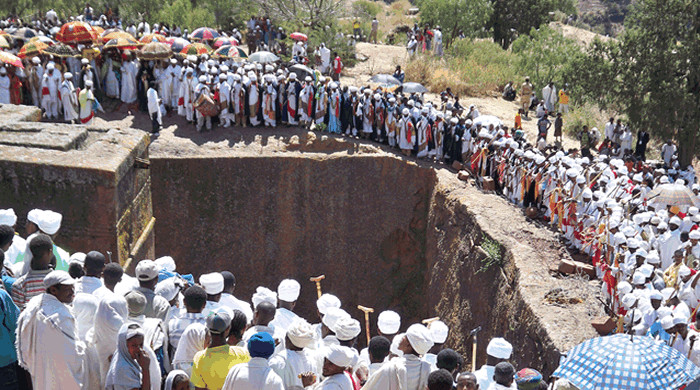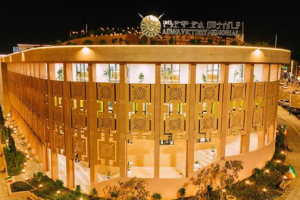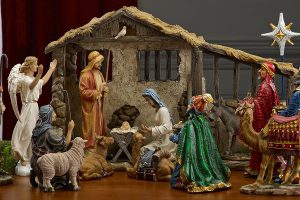
BY ALAZAR SHIFERAW
‘Genna’ Ethiopian Christmas is one of religious ceremonies that is celebrated to memorialize the birth of Jesus Christ the Son of Man. Grand ceremonies are held where Christians remember that Jesus was crucified for us before resurrection.
Surprisingly, apart from unique and joyful religious and traditional celebrations, what adds color to the occasion is Ethiopia’s being a country which has its own calendar and consequently seven years and eight months behind the rest of the Christian world. It is also one of the few countries that has own alphabets.
What is more, Ethiopia’s calendar comprises 13 months of sunshine; 12 months having 30 days each and a month with five days (or six days in leap years)
Besides, among other things, its time-old religious traditions have become an indivisible part of the Ethiopian cultures. Being one of religious festivities ‘;Genna’ charismas has been celebrated in a unique way in various parts of the country. Especially, Ethiopian Christians from all denominations Orthodoxies, Protestants and Catholics also composed from over 80 Nations and Nationalities and People enjoy the day according to their respective cultures and ritual ceremonies. This year, the day falls on January 7th. It remains a foremost religious and cultural event throughout the country.
‘Ganna’ is a very religious juncture on the Ethiopian calendar. As such, it is celebrated in mass starting from the eve by the Orthodox Christians through ceremonial festivity.
Above all, the ceremonial festivity around Ethiopian Orthodox churches here has been carried out accompanied by traditional liturgical singing services. Priests and deacons chant religious songs wearing colorful ecclesiastical robes embroidered with gold and silver threads. People wear traditional clothes.
Especially Ethiopian women put on white-cotton-made costumes that are decorated well. Significantly, during ritual ceremonies, Ethiopians wear traditional clothes which magnify their identity. They reflect love of their country.
Apart from ceremonial festivities, traditional clothes can promote cultures. Indeed, cultural clothes showcase peculiar Ethiopian sentimentality. They create a unique memory. Besides, wearing such clothes is preferable, especially on coffee ceremonies held in a holiday.
Moreover, Nations and Nationalities adorn themselves with their respective traditional clothes. Consequently, they can promote their cultures as well too. Currently, dressing such clothes has begun to pick steam among the community. Foreigners too are accustomed to wearing such traditional ones.
Although ‘Genna’ is observed by Christians across Ethiopia, the most famous Christmas celebrations, unquestionably, occur in the historic city of Lalibela. There, immaculately dressed pilgrims, in thousands, flock to Lalibela making a throng to watch, the Orthodox clergymen perform religious songs and dances encircling the steep ledges surrounding the famous rock-hewn churches, hewed out of a rock over many hundred years ago.
Accompanied by a slowly building tempo of traditional church drums, metallic sistrum and pilgrims clapping, they lead the crowd in a highly moving musical performance about the birth of Jesus Christ.
Though its conduct may look different here than in other parts of the world, the focus of Ethiopian Christmas is is no different. It aims to celebrate the birth of a Savior who came to annul the sins of the world and to bring peace to all humankind.
Lalibela one of Ethiopia’s tangible cultural heritages has been inscribed under UNESCO’s wonder list and still has plenty to offer to the world. The peculiar Ethiopian festival ‘Genna’ has quite varied ways of celebration from its date to cultural and religious rituals. AS Ethiopia, follows its own calendar, ‘Genna’ – falls on the 7th of January.
‘Selamta’ , Ethiopian Airlines’ Magazine, on its January 17, 2017 edition indicated that the day at Lalibela is celebrated colorfully in one of the oldest towns located in the Northern part of the country.
According to scripts of the Ethiopian Orthodox Church, Lalibela is considered as the second holy city of Christianity following Jerusalem, due to its 11 monolithic rock hewn churches.
King Lalibela, the town has been renamed after him, has 11 carved monolithic churches hoping to create the ‘new Jerusalem in Ethiopia”. The rock hewn churches of Lalibela, carved out of a huge rock in the 12th century, are also inscribed by UNESCO as world heritages.
Lalibela is a high place of Ethiopian Christianity; still it is a place of pilgrimage, particularly during Christmas. Followers of the Ethiopian Orthodox Tewahido Church flow to Lalibela for Christmas to observe the unique celebrations.
The celebration held in Lalibela for Christmas is unique. Dozens of priest, dressing white traditional clothes and putting on turbans and holding long crosses with their hands, form a circle at the top and bottom of the monolithic churches.
They sing a spiritual song called “Baza Kulu Lealem, Yom Tewelede” in Geez language, which means the savoir of the world is born today” using ‘Kebero’ which is similar to drum.
According to Ethiopian Orthodox Church, the priests; standing on the top of the curve represents angels, who rejoiced the birth of Jesus Christ, while the ones at the bottom represent the people in this world.
The celebration is unique in that the King himself was born on the same day with Jesus. He as well devoted himself for the Lord. “King Lalibela was born on the same day with Jesus Christ; he carved charming Churches and Lalibela represents his spiritual devotion”, it said.
The spirituality, originality, and historicity of the overall ceremony in Lalibela fill one’s heart with a joy of wonder, admire and respect, not only the followers of the church but also visitors. That is why thousands of tourists yearn to join the faithful on the Christmas celebration.
In this year’s celebration, over hundred thousand guests are expected to partake on Genna’s celebration, according to Head of Culture and Truism Bureau of Lalibela town.
Side by side the holyday ceremony, male adults in the country play ‘Ye ‘Genna Chewata’ a game similar to hockey. It is an Ethiopian traditional game which is similar to field Hockey, played during Christmas season.
Even though, the tradition is fading around urban areas people in rural areas are still playing the game during Christmas, once Solomon Afsaw, President of Ethiopian Traditional Sports Federation said.
Players use sticks made of wood called ‘Genna’ to hit a round; a hard wooden ball known as ‘Rur’ to play the game. Players put on special traditional clothes and shoes to illustrate their respect to the culture.
The Ethiopian Herald January 7/2021





